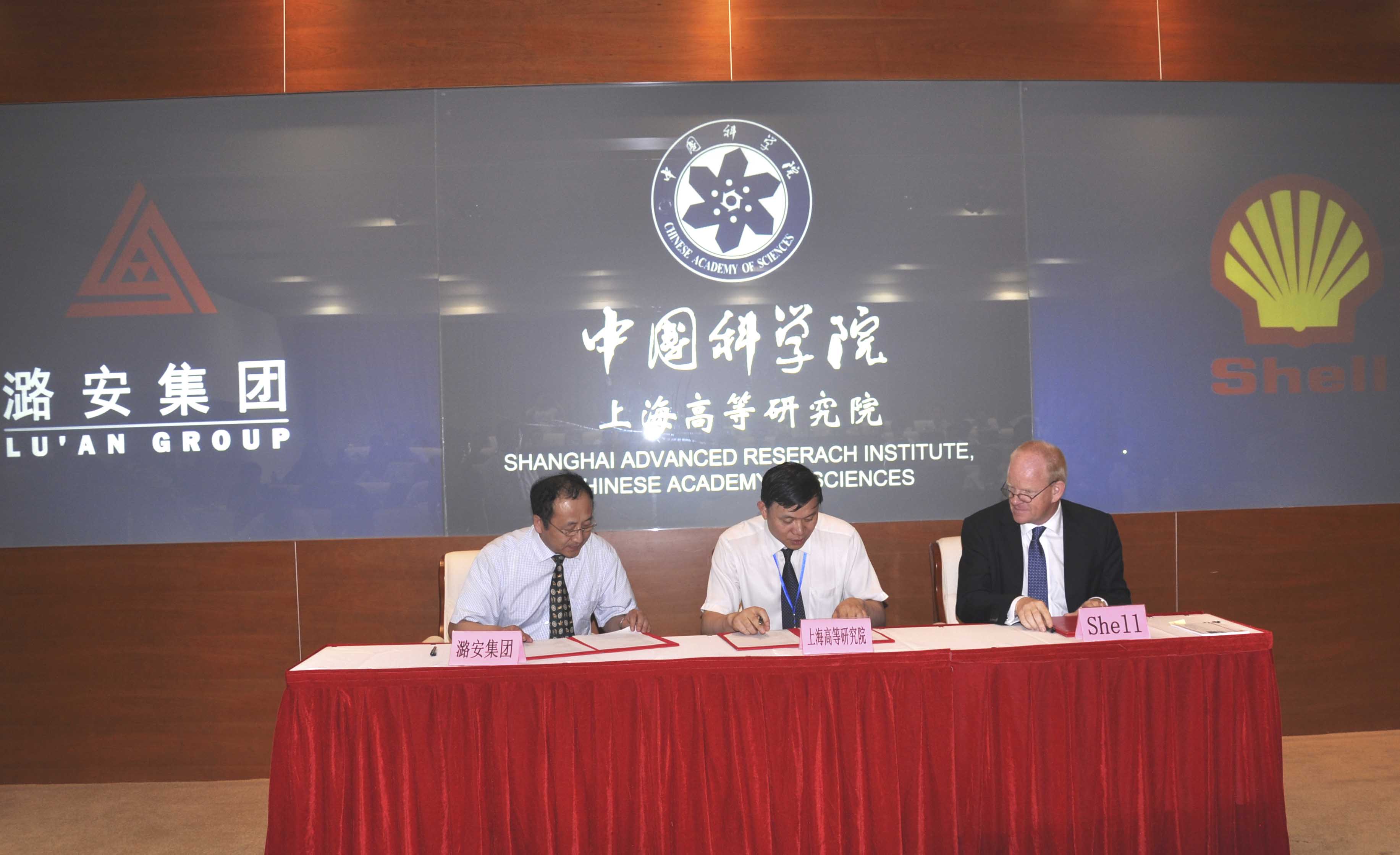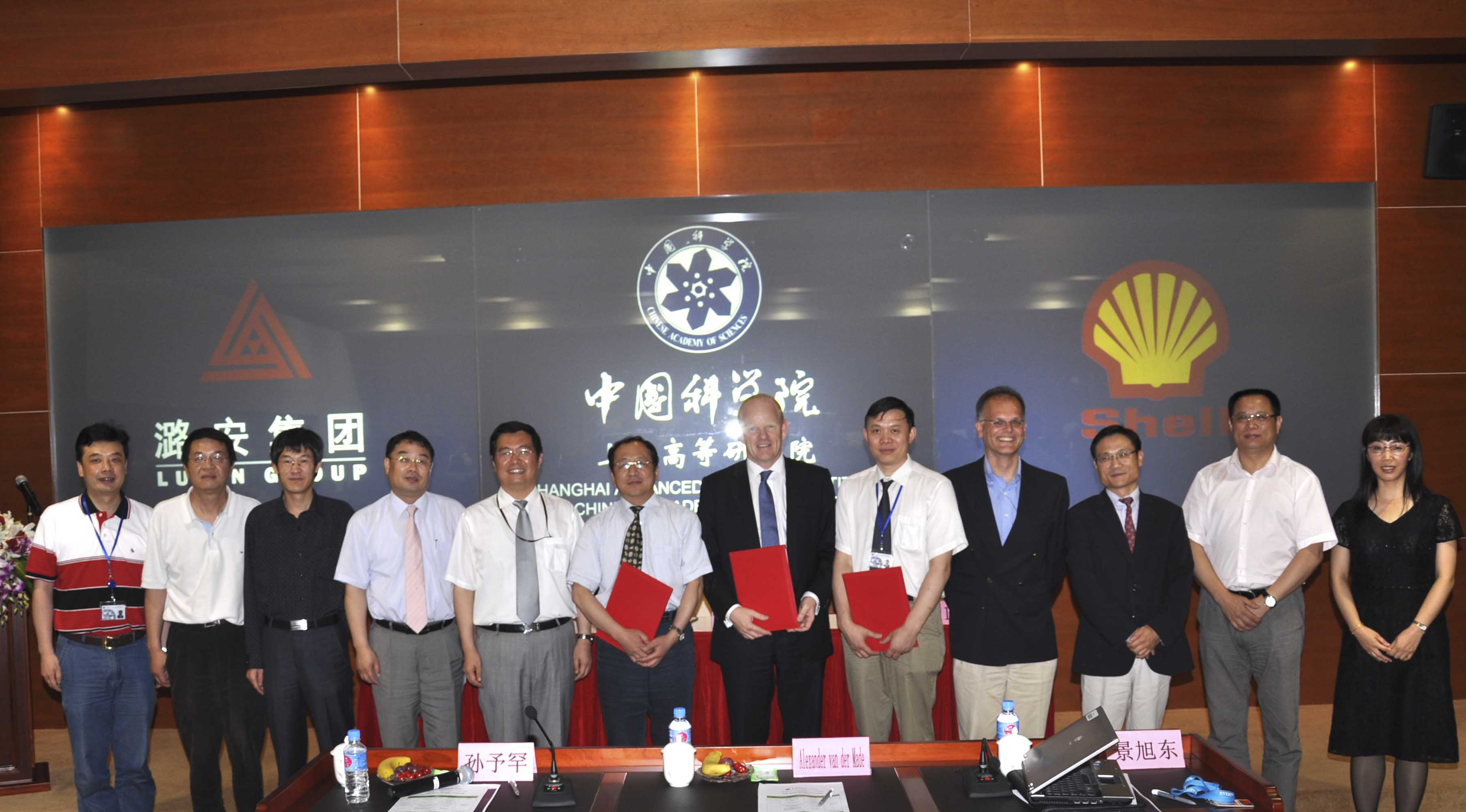News Update
SARI, Shell and Lu’An Signed Joint Research Agreement
date:
2011-06-27


On 24 June 2011, Shanghai Advanced Research Institute of Chinese Academy of Sciences (SARI-CAS), Shell Global Solutions International B.V. (Shell) and Shanxi Lu’An Group (Lu’An) signed an agreement to jointly demonstrate a novel “dry reforming” catalyst that can use or recycle methane and CO2 to produce syngas, the key raw material for a wide range of chemical products and fuels.
President of SARI-CAS Prof. FENG Songlin pointed out in his welcome speech that the three parties share the same mission of helping to meet the growing energy demand in economically, environmentally and socially responsible ways, and that the signing of this joint research agreement signified another milestone of the partnership.
Gerald Schotman, Chief Technology Officer of Shell Group, said: “I’m pleased to see this major step forward to broaden our partnership with SARI-CAS in R&D and technology demonstration and deployment. This novel technology, once proven successful on a commercial scale, can play an alternative role to the classical coal gasification process and create more market opportunities.”
Prof. SUN Yuhan, Vice President of SARI-CAS said: “We are delighted to have this opportunity to once again partner with Shell in this joint project. With Lu’An as a new partner, I look forward to a fruitful joint demonstration of this new technology which can play a significant role in China’s future energy and chemicals landscape.”
Mr. LIU Bin, Deputy General Manager of Lu’An said: “We are very pleased to cooperate with Shell and SARI-CAS in the catalyst scale-up and engineering research for CO2-CH4 reforming to synthesis gas, and to carry out a pilot test of the technology at Lu’An Low Carbon Economy Zone. We anticipate that we can provide a new efficient route to large-scale production of synthesis gas through trilateral cooperation, contributing to the development of coal-based chemical industry.”
The new agreement follows a joint R&D programme run by Shell and Institute of Coal Chemistry of Chinese Academy of Sciences (ICC-CAS) in 2008 to 2011. The researchers studied the conversion of syngas to higher alcohols, where they saw a mixture of CO2 and methane as side-products.
Using this new “dry reforming” catalyst, which is an application of nanotechnology, the joint research team recycled these side-products to produce syngas again. The catalyst stays active for a prolonged period of time, becoming a commercially attractive way to increase the process’ carbon efficiency.
Under the three-party agreement, this novel technology will undergo a pilot test at a commercial site of Lu’An, before it can be made available to the market.
Representatives from Science and Technology Department, International Cooperation Department and researchers in Energy and Environment Division of SARI-CAS joined the signing ceremony. After the ceremony, Gerald Schotman made a presentation titled “Taking the Industry to the Next Level”, and Prof. SUN Yuhan introduced Energy RD&D strategy at SARI-CAS. Participants from the three parties then conducted in-depth discussion regarding topics of common interests.





